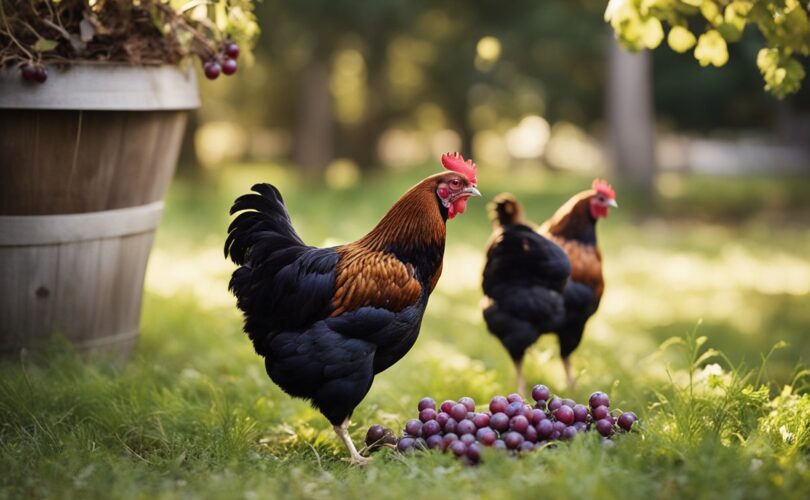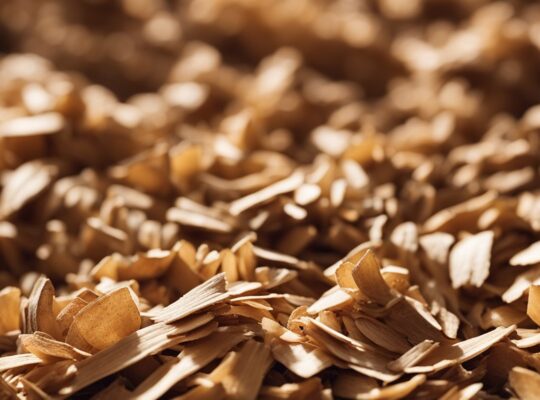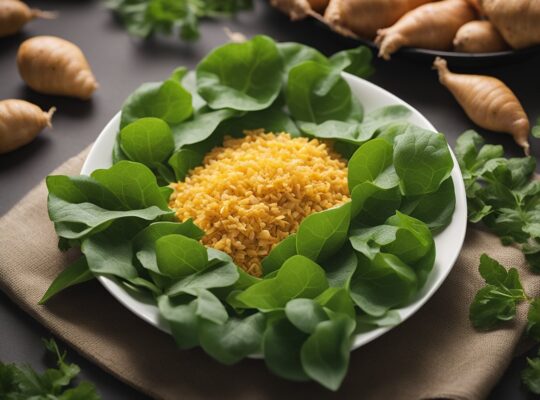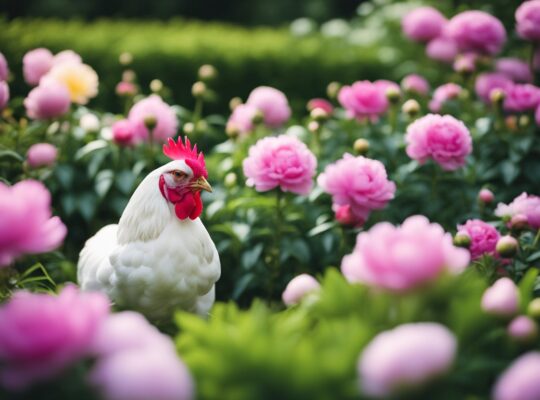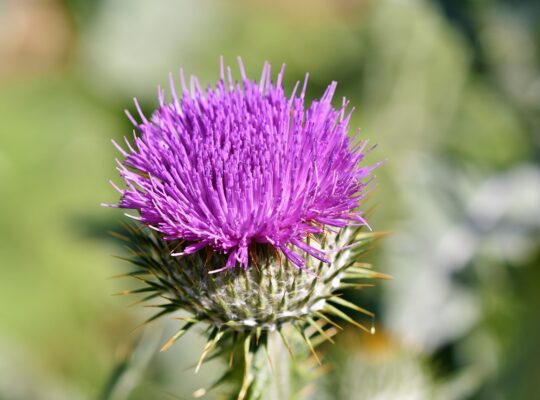Chickens are omnivorous animals that can eat a variety of foods to maintain their health and well-being. While their primary diet consists of grains, seeds, and insects, chickens can also eat fruits and vegetables as treats.
One such fruit that chicken owners may be curious about is muscadine grapes. If you’re wondering whether chickens can eat muscadine grapes, the answer is yes, they can.
Muscadine grapes are a type of grape that is native to the southeastern United States. They are larger and sweeter than regular grapes and have thicker skin. These grapes contain vitamins and antioxidants that can benefit chickens’ health.
However, as with any treat, muscadine grapes should be given to chickens in moderation and as part of a balanced diet.
Nutritional Benefits and Risks of Feeding Muscadine Grapes to Chickens
If you are a chicken owner, you may be wondering whether muscadine grapes are safe and nutritious for your feathered friends. Let’s explore the nutritional profile of muscadine grapes and the potential health benefits and risks of feeding them to your chickens.
Understanding Muscadine Grapes Nutritional Profile
Muscadine grapes are rich in antioxidants, including resveratrol, which can help to protect against cell damage and inflammation.
In addition to antioxidants, muscadine grapes are also a good source of vitamin C, fibre, magnesium, potassium, calcium, and vitamin K. These nutrients can help support your chickens’ overall health and well-being.
Health Benefits of Grapes for Chickens
Feeding your chickens muscadine grapes can provide a range of health benefits. For example, the antioxidants in grapes can help to boost your chickens’ immune system and protect against disease. Additionally, the fibre in grapes can help to support healthy digestion and prevent constipation.
Calcium is another important nutrient found in muscadine grapes, which can help to maintain cardiovascular health and other healthy functions in the body.
Chickens have a much higher metabolism than humans, so the sugars found in grapes are digested differently. The calcium content of grapes also helps to strengthen bones.
Potential Risks and Side Effects
While muscadine grapes are generally safe for chickens to eat, there are some potential risks and side effects to be aware of.
For example, grapes are high in sugar, so feeding your chickens too many grapes can lead to weight gain and obesity.
Additionally, grapes can be a choking hazard for chickens, especially if they are not cut into small pieces. It is also important to wash grapes thoroughly before feeding them to your chickens to remove any pesticides or chemicals that may be present.
Muscadine grapes can be a nutritious and healthy treat for your chickens when fed in moderation and as part of a balanced diet.
By understanding the nutritional profile of muscadine grapes and the potential health benefits and risks of feeding them to your chickens, you can make an informed decision about whether or not to include them in your chickens’ diet.
Best Practices for Feeding Grapes to Chickens
If you have muscadine grapes growing in your backyard, you might be wondering if it’s safe to feed them to your chickens. The good news is that chickens can eat muscadine grapes, and it can be a nutritious treat for them.
Here are some best practices for feeding grapes to chickens:
Moderation and Portion Control
While grapes are a healthy treat for chickens, they should be given in moderation. Chickens’ diets should consist of at least 90% complete feeds, so treats like grapes should only make up a small portion of their diet. Overfeeding grapes can lead to digestive problems, and it can also cause your chickens to become overweight.
When feeding grapes to your chickens, it’s important to control the portion size.
You can slice the grapes into small pieces to make it easier for your chickens to eat. A good rule of thumb is to give each chicken no more than one or two grapes per day.
Incorporating Grapes into Chickens’ Diet
To incorporate grapes into your chickens’ diet, you can mix the sliced grapes with their regular feed or scatter them around their coop or run. This will encourage your chickens to forage and peck, which is a natural behaviour for them.
It’s important to note that grapes should not replace your chickens’ regular feed. Grapes are a treat, and they should be given in addition to their regular feed.
Safety Precautions and Alternatives
When feeding your chickens grapes, it’s important to take some safety precautions. Grapes contain a lot of water, so if you mix them with your chickens’ feed, it can cause the feed to spoil. Instead, it’s best to give grapes as a separate treat.
You should also avoid giving your chickens grapes with seeds. The seeds can get stuck in your chickens’ crops and cause digestive problems. If you don’t want to remove the seeds yourself, you can buy seedless grapes or give your chickens raisins instead.
In addition to grapes, there are other treats you can give your chickens, such as mealworms, fruits, and vegetables. Just like grapes, these treats should be given in moderation and as part of a balanced diet. It’s also important to provide your chickens with grit to help them digest their food properly and to ensure they have access to clean water for hydration.
By following these best practices, you can safely and responsibly feed grapes to your chickens as a healthy treat.

